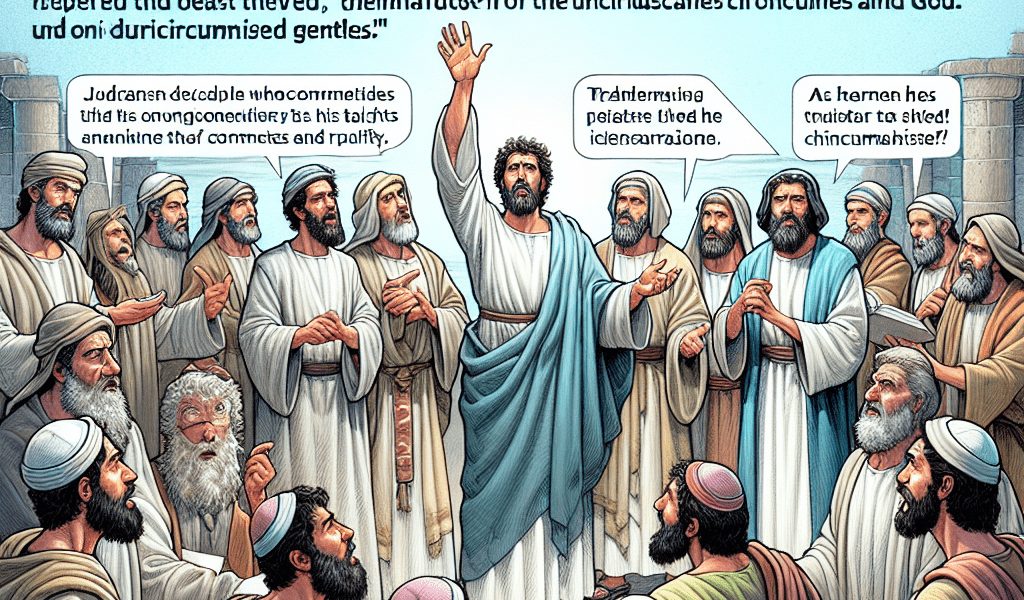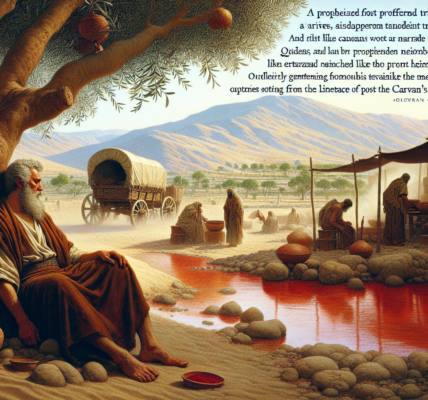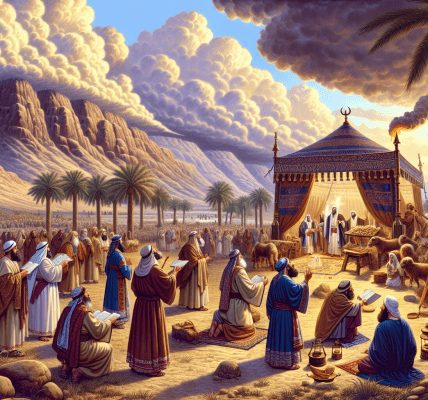Unveiling the Divine Inclusivity: The Apostolic Transition from Jews Only to Jew and Gentile Believers
In the early days of the Church, the apostles and their brethren in Judaea heard about a momentous breakthrough. They received news that Gentiles—the non-Jewish communities—too, had gratefully accepted the word of God. This was ground-breaking as the Church which up till then had been composed only of faithful Jews was now broadening its scope to include Gentiles, too.
Peter was called upon by the disciples who were of the circumcision—gentiles converted and circumcised to Judaism— to account for his seemingly radical actions. They were aggrieved that Peter had broken Jewish tradition by eating and associating with the Gentiles who were uncircumcised, a practice viewed as religiously impure.
Undeterred by the contention, Peter firmly relayed his experience – a vivid account of his spiritual vision during prayer in the city of Joppa. He recalled how, in a trance, he had seen a great sheet descending from heaven carried by its four corners, and within it lay all creatures of the earth, wild beasts, creeping things, and winged birds.
A voice, discerned as divine, commanded him to rise, kill and consume these creatures. But being a disciple under the Jewish Law, Peter hesitated, claiming he had never let anything unclean or common enter his mouth. The voice from heaven responded, reiterating that what God had made clean should not be considered common by man. This scenario occurred not once but three times, after which the vision ended with the sheet being taken back up to heaven.
Shortly after the vision, three men arrived from Caesarea in search of Peter. The Holy Spirit instructed Peter to accompany them, making no distinctions. The six brethren with Peter witnessed these events, and they entered the house of a Gentile, a Centurion named Cornelius.
Cornelius recounted his vision of an angel instructing him to send for Peter, stating that Peter’s message would bring salvation to his household. As Peter commenced his speech, the Holy Spirit descended upon them similarly to what happened at the beginning of the Church.
Recalling Jesus’ promise, Peter acknowledged that while John baptized with water, the Holy Spirit was the true source of baptism promised by the Lord. It was clear that God had given the Gentiles the same gift of the Holy Spirit as He had given to the Jews who believed in Jesus Christ. Peter questioned his authority to challenge God’s will. Upon hearing Peter’s account, the disciples were silenced and later praised God for extending His salvation to the Gentiles.
Following these dramatic events, scattered believers, displaced because of Stephen’s martyrdom, traveled as far as Phoenicia, Cyprus, and Antioch preaching only to Jews initially but eventually, some of them, particularly men from Cyprus and Cyrene, began sharing the gospel with Greeks, too. The Lord’s mighty hand was evident as many turned to follow Him.
News of these developments reached the church in Jerusalem, prompting them to send Barnabas to Antioch. On seeing the grace of God manifest through believers, Barnabas rejoiced, encouraging all to continue placing their trust in God. He himself was a good man, full of faith and the Holy Spirit, which led to many more turning to the Lord.
Barnabas also went to Tarsus to seek out Saul. Once he found him, the pair returned to Antioch where they taught the church for a year. It was during this time that the disciples were first called “Christians” in Antioch.
Around the same time, prophets from Jerusalem came to Antioch. One of them, named Agabus, prophesied by the Spirit about a severe famine that would spread throughout the world under the reign of Claudius Caesar. This prompted the disciples to send aid to their brethren in Judea, exercising generosity according to their means. They sent the relief by the hand of Barnabas and Saul to the elders in Judea, demonstrating the true kindness and unity of the early Christian church.




